Ideally, all children and youth would be able to be raised by their biological parents, or, when they cannot be, would still be able to be raised within their own culture and community by relatives or kin.
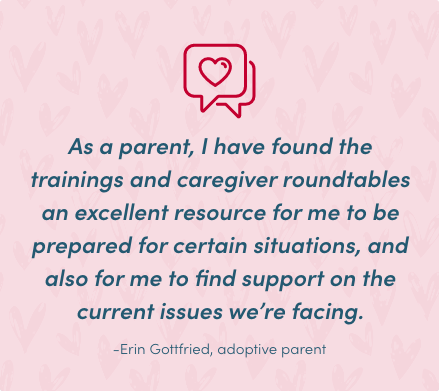
Sadly, sometimes neither option is available and a family who is not related to the youth must be sought. Ampersand Families calls these types of adoptive situations “Non-Relative Families.” Non-Relative caregivers are important in providing care, support, and permanency to youth who may not have biological family members or relatives who can provide that care.
We prepare and support families by encouraging them to be as clear as possible about their hopes, fears and expectations for adoption. Self-knowledge is crucial when it comes to figuring out which youth your family is best equipped to parent.
Ampersand Families is proud to work with all types of people and places youth in families of all types.
Married, single, straight, gay, bisexual or lesbian, cis or transgender, and people of all races and cultures are invited to share the table at our trainings and events. Ampersand Families is not a faith-based organization; believers and non-believers are welcome.
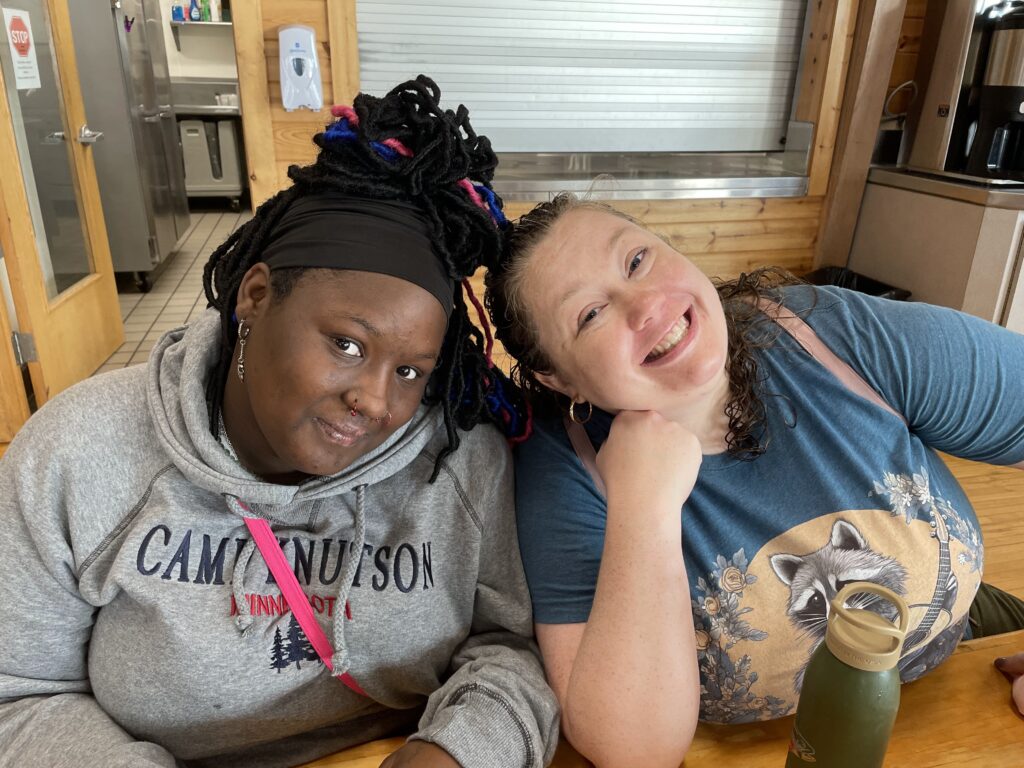
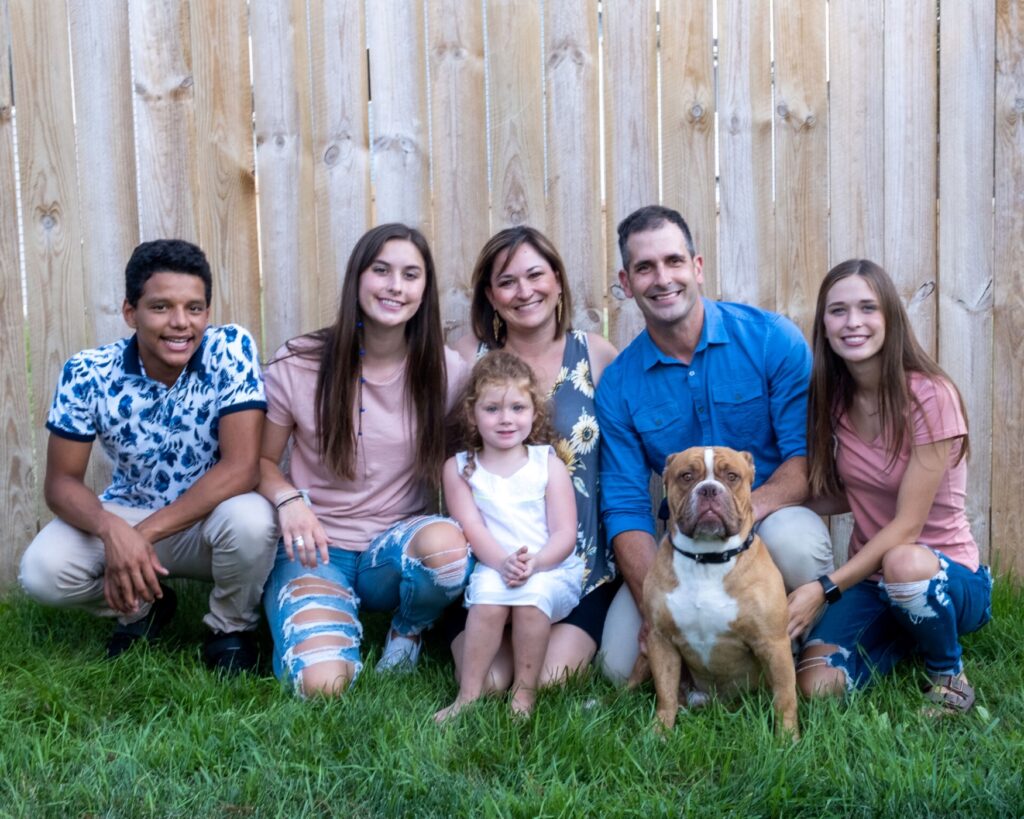
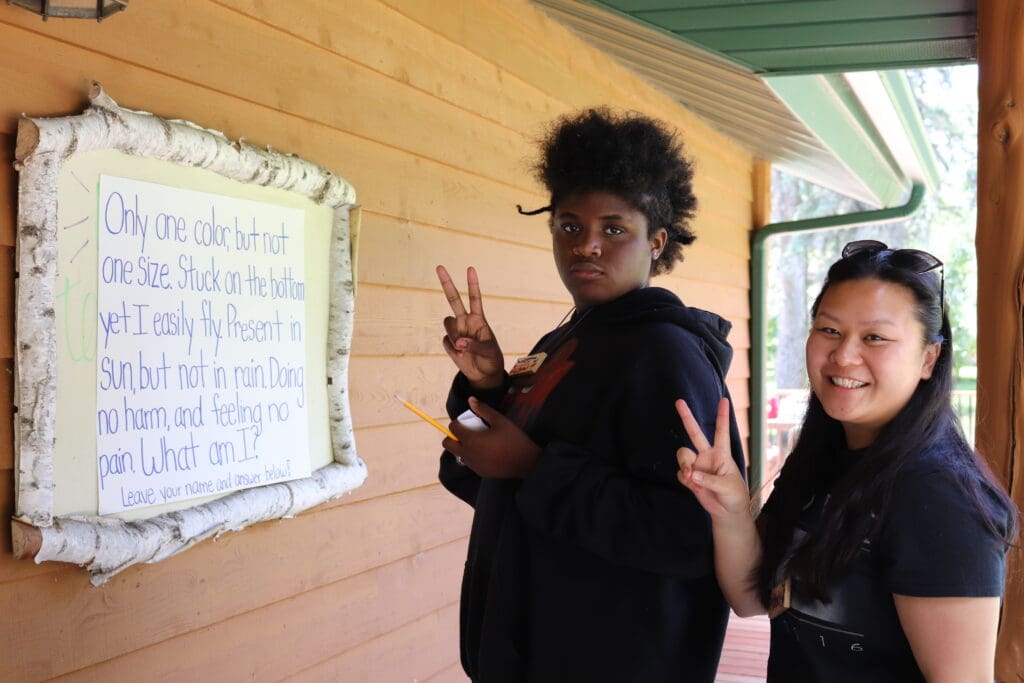
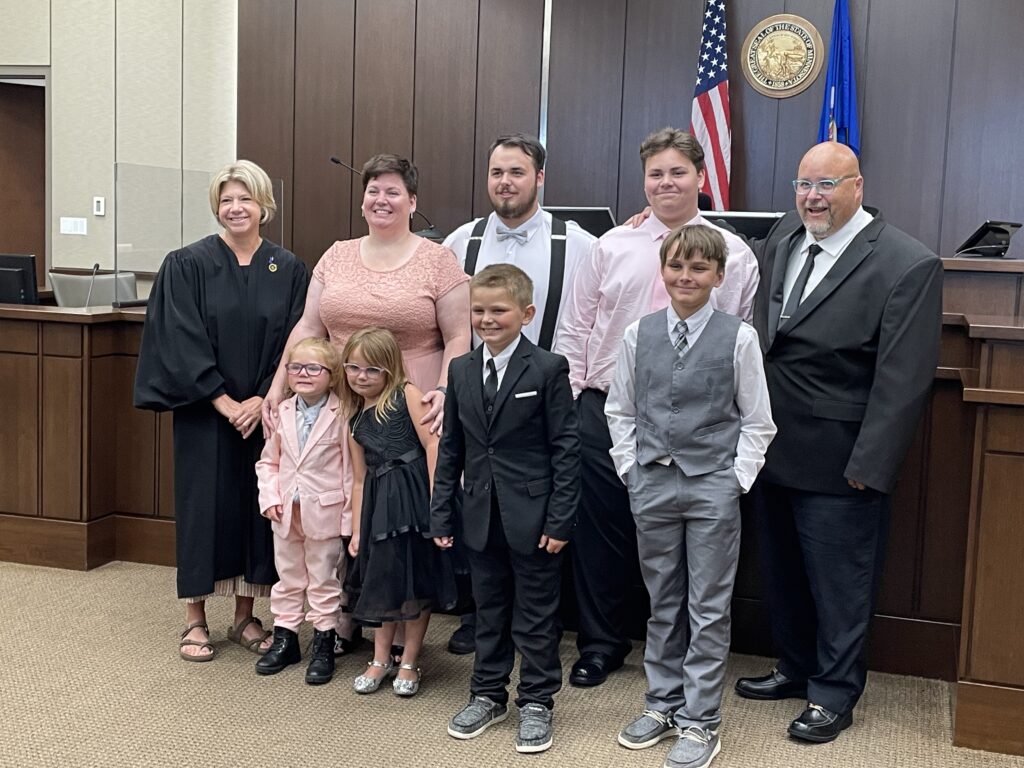

Caregivers wishing to adopt in Minnesota must:
- Be at least 21 years of age.
- Have sufficient household income to support adopted child/ren. Adoption assistance is available, but is not intended to cover the actual costs of raising a child.
- Pass an Adam Walsh Background Check (household members age 18+ must submit fingerprints). We welcome any questions you have about how your specific history might impact a background study.
- Participate in pre-adoption and foster care training (about 16 hours).
- Actively engage in the home study process.
Just as we expect families to make an unconditional commitment to the youth they adopt, Ampersand Families makes an unconditional commitment to support caregivers and youth in building and sustaining their new family — in moments of joy and of heartbreak.
We provide all services required for a family to adopt a child under guardianship of the Commissioner of Human Services in Minnesota, plus additional supportive services, at no cost to families.
These include:
Non-Relative Orientations
Families who want to learn more about Ampersand Families and the adoption process can schedule a 1:1 orientation with the Family Support and Education Specialist.
Schedule an orientation:
Home Studies & Foster Care Licensing
Are you a Minnesota resident wishing to be considered as a placement option for an older youth or teen in foster care?
Ampersand Families works with prospective adoptive families to complete the foster care licensing and home study assessment process. The home study will include thoughtful reflection and interviews with family, background check, home safety check, and training. The first step is to schedule an orientation to learn more.
Resources and Assessments for Pre-Adopt Families
- Ampersand Families Themes and Questions For Prospective Adoptive Parents
- NTDC: Characteristics of Successful Foster and Adoptive Parents
- NTDC Self-Assessment Guide for Families
- What Does Your ACE Score Mean?
Learn how “Adverse Childhood Experiences” (also known as ACEs) impact health and development and how protective factors can buffer these negative outcomes and promote healthy development.
Parent Consultation Supports
Ampersand Families provides our pre-adoptive families and the pre-adoptive families of youth we are connected to through Child Specific Recruitment with proactive parent consultation around the time a youth/sibling group transitions into the home. We contract with some highly regarded adoption and trauma competent therapists for this service, through generous funding from the MN Department of Human Services.
We hear from most, if not all families, that it’s really difficult to access useful parent support, and many parents reach out after things have already gotten really hard. By then, therapists have waiting lists and the process to get started is overwhelming. They wish they had gotten personalized consultation and guidance on things like attachment, handling emotional and behavioral challenges, and navigating the stresses of parenting kids who have experienced trauma. Parent Consultant Support sessions allow us to connect our families with the type of proactive, adoption competent support they deserve.
Parent Trainings
Caregivers looking to adopt must complete approximately 24 hours of training.
This includes both agency-specific education as well as trainings through external partners. These hours are built into the process and do not need to be sought out alone.
Caregiver Roundtables & Retreats
Caregiver Roundtable is our support group for Ampersand-affiliated adoptive, pre-adoptive, and kinship caregivers. The group meets the fourth Thursday of every month from 6-7:30, usually at our Roseville offices. Family retreats take place three times per year in various locations around Minnesota. Both are organized as time for caregivers and youth to connect with other families and build community.
At Caregiver Roundtable, caregivers are invited to share their experiences and seek support from other caregivers. While adults meet, youth participate in an activity supervised by Ampersand Families staff. Dinner is provided to all who attend.
Family Retreats are an opportunity for families to develop relationships with each other in a less formal setting. Retreats can last a single day or a full weekend and can include a variety of activities including family camp activities, outdoor games, guest speakers, care packages, and more.
Buddy Family Program
Buddy families are people from the community trained and committed to supporting a pre-adoptive or adoptive family for at least one year.
The Neurosequential Model of Therapeutics™
The Neurosequential Model of Therapeutics™ (NMT) is a comprehensive trauma assessment that identifies the impact of childhood trauma on a young person’s developing brain and offers the building blocks for individualized care.
Developed by the Child Trauma Academy, the NMT™ helps identify and prioritize areas of brain development that may need more support and makes concrete suggestions for future interventions.
Minnesota Youth Voice (MYVoice)
MYVoice is the youth leadership program of Ampersand Families.
MYVoice welcomes all Minnesota young people ages 12-22 who have lived experience in foster care and/or adoption. Participants meet to plan virtual social events; get paid to create art and do book reviews; can request free art materials and journals; and can be paid to present at advocacy events such as focus groups and panels.
To get involved, contact us:
- Send us an email
- Refer yourself or a youth via our short online MYVoice Referral Form
To learn more:
- Follow us on Instagram @mnyouthvoice
- Friend us on Facebook (Emily Ampersand),
- Review our website.
Heart Gallery Family Photos
Through the Heart Gallery program, we are also offering Family Photo Sessions to the families we work with at Ampersand Families who are in the pre-adopt placement, finalization, or post-finalization processes. Our hope is for these photo sessions to provide these families with cherished photos that capture their new family.
Contact Teiana for more information or to schedule.
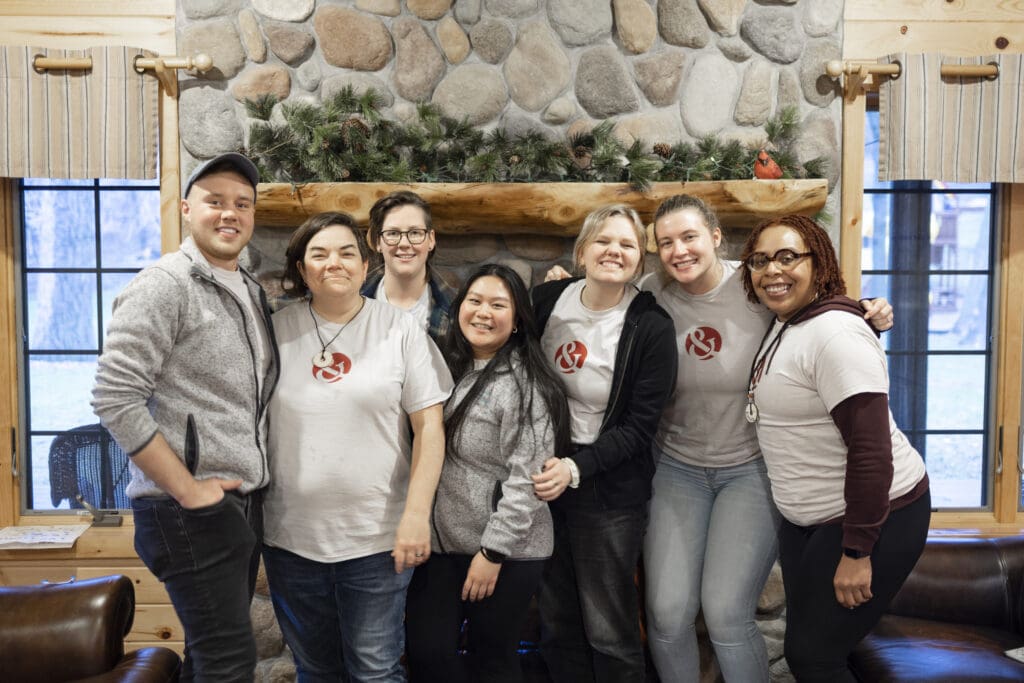
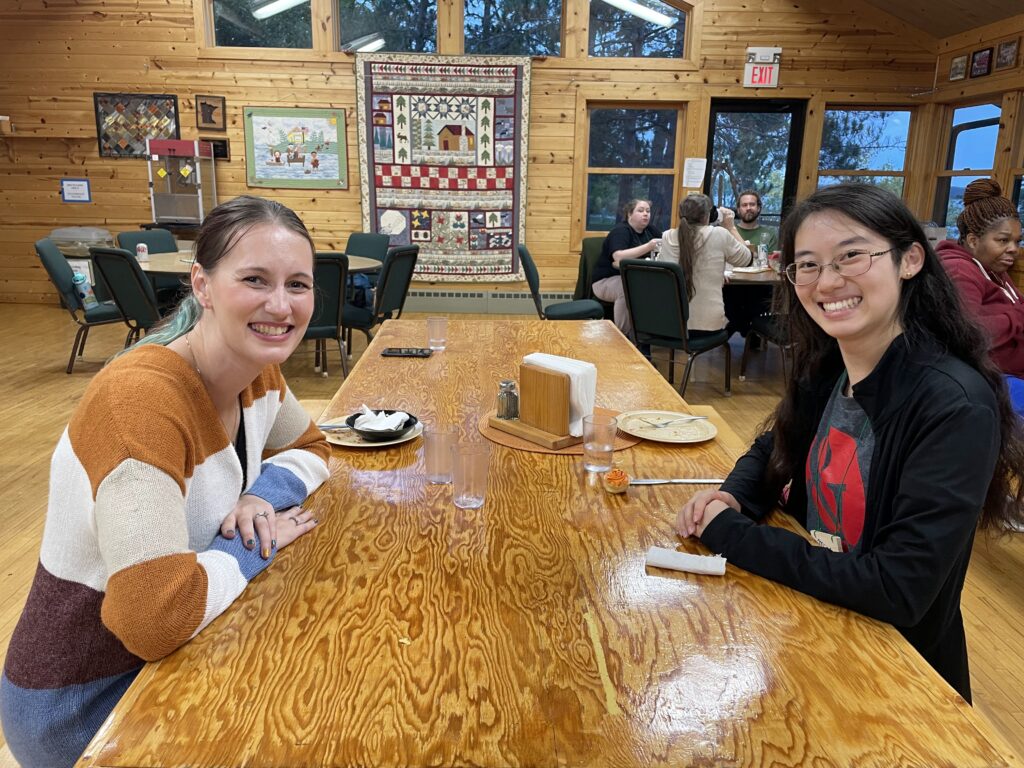
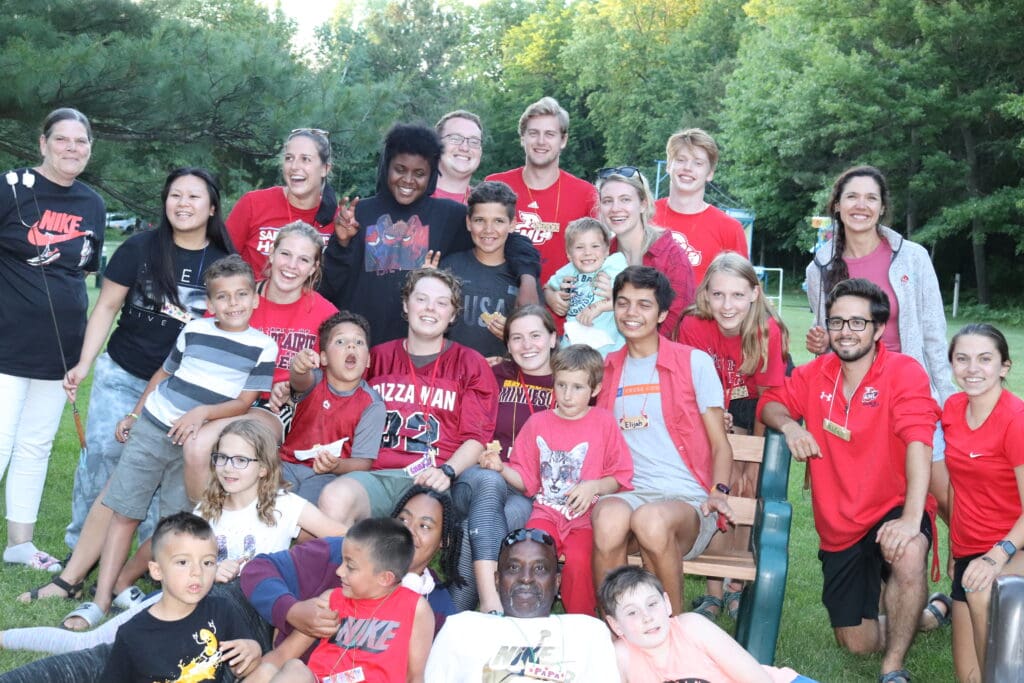
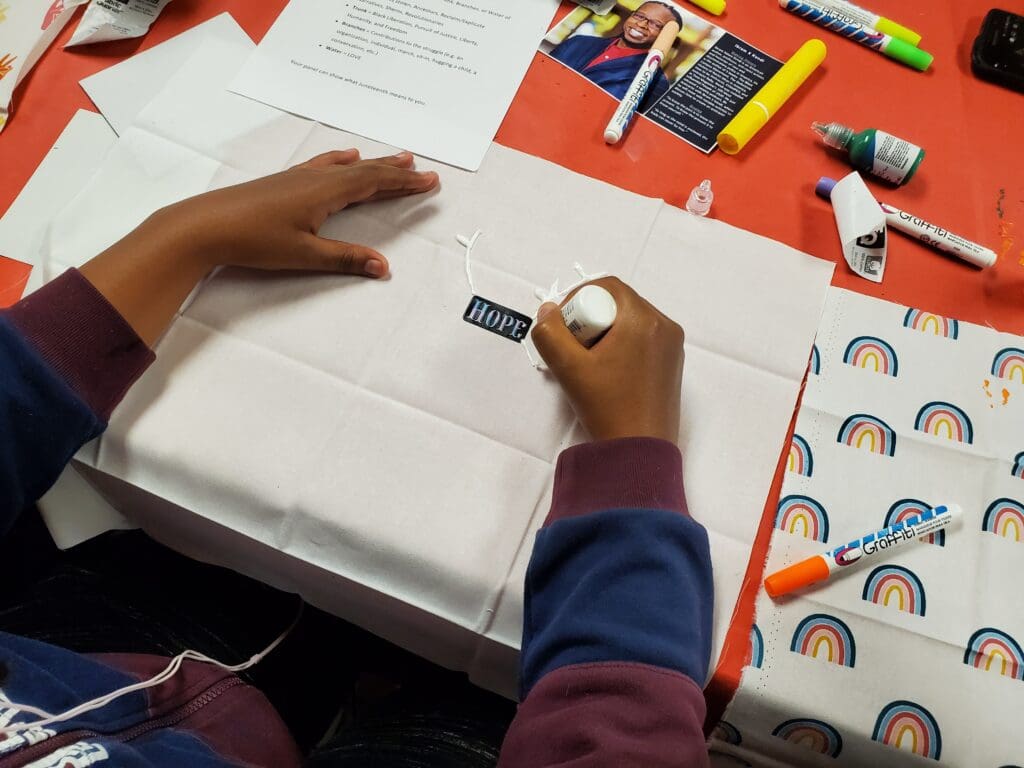
Many families that adopt through Ampersand Families:
- Understand the personal and societal cost of allowing young people to age out of foster care without positive family relationships.
- Choose to adopt from foster care understanding the social justice issues that surround adoption and the child welfare system.
- Commit to helping maintain birth family and other significant relationships.
- Often have experienced challenges in their own lives and have done their own therapeutic work.
- Are resilient.
- Have a great balance of realistic expectations and great hope for what it means to adopt an older youth.
- Know that they may need their own therapeutic support as they grow and develop in their new role as a parent to an older wounded, but resilient, youth.
- Are proactive in reaching out for help.
- Have a rich network of friends and family who are committed to helping their family succeed.
- See the value of accessing community-based supports and services.
- Have and use a sense of humor and irony.
- Have interests and activities they hope to share with youth.
- Genuinely enjoy teens.
- Have to ability to keep focused on the goal of adoption, even when the steps and systemic barriers make the process frustrating.
- Make an unconditional commitment to youth to be there for them, no matter what.




